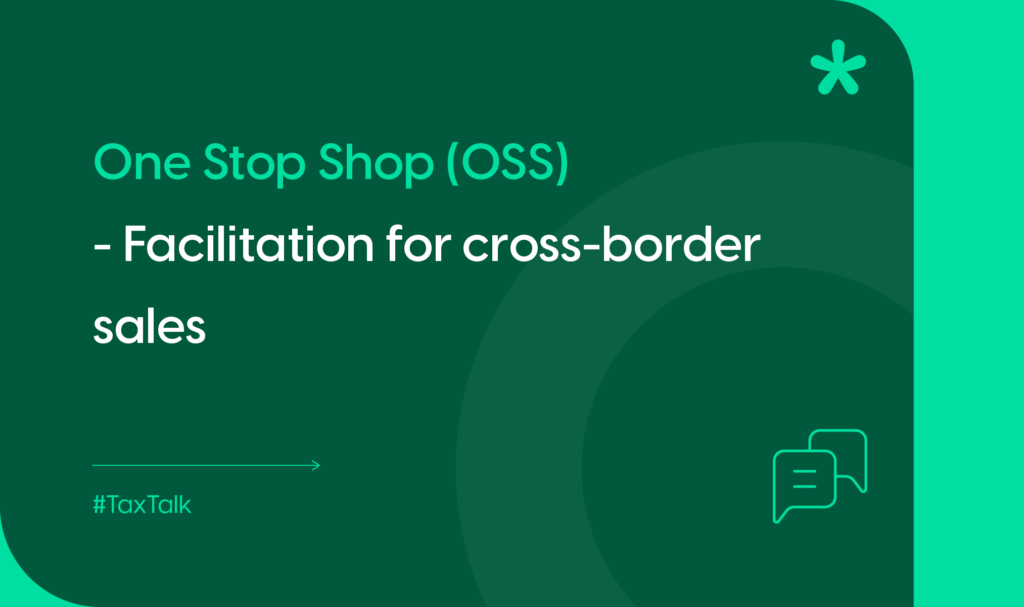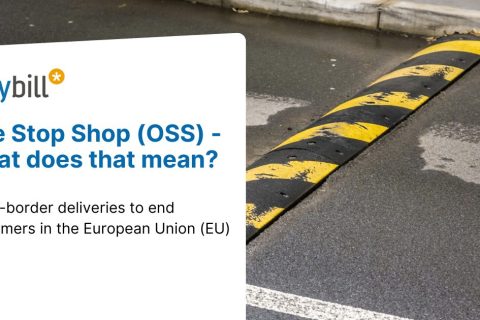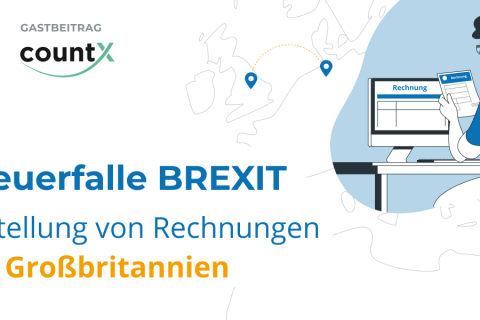
What exactly does the One-Stop-Shop stand for? In a globalized world where companies are increasingly operating across borders, simplifying business processes is crucial. One of the latest tools introduced in the past two years to help companies in the European Union (EU) simplify their VAT settlements is the so-called “One-Stop-Shop” (OSS) procedure.
This concept has the potential to significantly reduce bureaucracy and ease tax obligations for businesses operating in multiple EU countries. In this blog post, we will examine the one-stop-shop procedure in more detail.
Why was the OSS procedure introduced in 2021?
The idea behind the OSS procedure is to reduce the burden on businesses providing cross-border services and goods within the EU. Prior to the introduction of the OSS procedure, businesses operating in different EU Member States had to make separate VAT declarations and payments in each country. This led to a considerable administrative burden, especially for small and medium-sized enterprises.
The OSS procedure provides a single point of contact where companies can submit their VAT returns and payments for cross-border activities in a single EU country. This reduces the administrative burden and makes it easier to comply with VAT regulations.
What does the OSS process cover?
The OSS procedure applies to both services and goods supplied across borders within the EU. This means that companies that provide services or sell goods in different EU countries can benefit from this procedure. Whether it is the sale of fashion items, software licenses or online services, the OSS procedure can significantly reduce the burden on companies in various sectors.
It is important to know that the OSS procedure is not used in the business-to-business sector, as otherwise we are talking about tax-free, intra-Community supplies. OSS therefore only applies in the B2C sector.
How does the OSS process work?
Businesses that want or need to participate in the One-Stop-Shop, due to EU-delivery threshold (from 10,000 Euro) being reached, must first register with the tax authority of the EU country in which they are based. Once registered, they can submit regular OSS declarations in which they summarize the VAT for all cross-border activities within the EU. These returns are submitted electronically via the system of the respective tax authority.
Advantages of the OSS process
The One-Stop-Shop process offers several advantages for companies, including:
Reduced administrative effort
Companies no longer have to submit separate VAT returns in each EU country in which they operate. This saves time and resources.
Better compliance
Centralized processing simplifies compliance with VAT regulations, which reduces the likelihood of errors.
Improved transparency
Companies have a better overview of their cross-border business activities and the associated tax obligations.
Support for the internal market
The OSS procedure contributes to the creation of a single internal market in the EU by facilitating trade across borders.
The OSS in easybill
As an invoicing software, easybill naturally supports the OSS. As an entrepreneur in e-commerce, the easybill Import Manager offers the function of using OSS recognition to show the tax rates of the country of dispatch. A comprehensive evaluation in easybill itself gives you the perfect overview of your foreign sales. You don’t have to search for complicated data or collect it from various sources. With just one click you get the complete overview and can of course also export it.
Does your tax consultant still have a huge amount of work to do to correctly post OSS sales? Here too, easybill can help. Using the format configuration for the DATEV invoice data service 1.0, you can store all accounting accounts for the respective EU countries to which you sell goods once. Once the invoice has been created, the account is automatically assigned in the background and transferred when exporting to DATEV.
Conclusion
The One-Stop-Shop procedure is an important step towards simplifying VAT settlements for companies operating across borders in the European Union. It reduces bureaucracy and makes it easier to comply with VAT regulations. Companies should inform themselves about the benefits and requirements of the OSS procedure in order to take advantage of the opportunities to streamline their cross-border business. With this initiative, the EU aims to make doing business across borders as seamless as possible and promote growth across the region.
Read also:
E-Invoicing obligation for craftsmen: The most important facts about the changeover as of 2025
XMAS – Last minute tips for your Christmas business
Increasing efficiency with e-invoices: Why your company should no longer rely on paper




